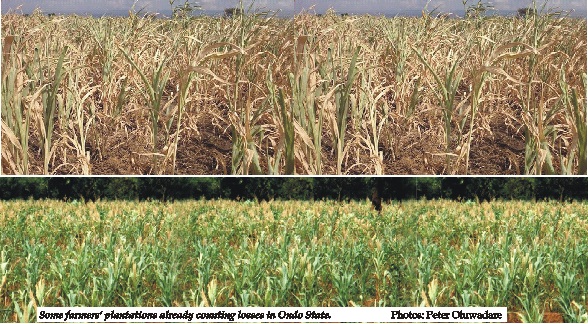Deaths through generators’ fumes too many
By Adetokunbo Abiola
|
Last week, five members of a family died after inhaling generator fumes at Bisodun village in Obafemi-Owode Local Government Area of Ogun State. According to reports, the remains of the victims were discovered by residents of the community in the early hours of Thursday, March 9, 2023, after perceiving unwanted odour coming from their house.
In July 2021, four members of a family died from generator fumes in Sanmora in Irepodun Local Government Area of Kwara State.The victims, who recently travelled in from Lagos to celebrate the Sallah festival, left the generator set working all night while they went to bed. Consequently, they suffocated and died in their sleep.
In August 2020, seven people died due to inhalation of generator fumes at Rijau town, in Rijau Local Government Area of Niger State inside the Afrash Beauty Saloon located along Bawa Rijau road. Investigation revealed that the ladies slept with generator on inside the shop.
From what happened at Rijau, Samora, and Bisodun villages, it is clear lots of Nigerians die from inhalation of generator fumes, and to confirm the dimensions of the problem, an expert in 2014 stated that no fewer than 10,000 Nigerians have over the years died from poisonous ‘generator’ fumes, especially in the years between 2008 and 2014.
In a report, the National Bureau of Statistics disclosed that Nigeria gets 48.6 per cent of its electricity needs from generators powered by petrol, diesel, and gas, with the country spending $5.26 billion importing electric generating sets, electric transformers, vacuum cleaners, hair clippers, and other electrical machinery and equipment in 2020 and 2021.
Over 40 per cent of Nigerian households own generators and bear the associated costs, while the the cost of purchasing generators – an estimated $500 million between 2015 and 2019 – proves higher than the proposed capital expenditure in Nigeria’s 2022 budget, with the African Development Bank estimating that Nigerians spend $14 billion fuelling petrol- or diesel-powered generators.
From an estimated $259.8 million in 2021, the Nigerian gas genset market revenue is set to rise to $514.4 million by 2030, witnessing a CAGR of 7.9% between 2021 and 2030, while in 2021, CO2 emissions Nigeria was 127 million tons, witnessing a substantial increase through 1972 – 2021 period.
With the increase in the nation’s carbon footprint, as well as a rise in the number of Nigerians owing generators, it becomes reasonable to expect accidents that cause the inhalation of generator fumes, a factor worsening through the country spending $5.26 billion importing electric generating sets, electric transformers, vacuum cleaners, hair clippers, and other electrical machinery.
Nigerian businesses and households spend a whopping $22 billion (about N9.053 trillion) annually to fuel generators powering offices and homes, as the country battles an embarrassing nationwide power shortages with no end in sight, with Nigeria the largest African importer of diesel generators and back-up diesel generation at a national average of 5.6 persons per household, with 20.34 million households connected to the national grid.
According to data from Nigeria’s first greenhouse gas (GHG) inventory published in March 2021, the country’s GHG removal reduced by 23 percent within the period between 2000 to 2017, while its emissions continued to rise within the same period, with lots the carbon emissions coming from energy, industrial processes and product Use (IPPU) and waste sectors.
The population of Nigeria is expected to increase from 206 million people in 2020 to 263 million in 2030, 401 million in 2050, and a massive 733 million in 2050, a frightening situation, because Nigeria is the most populous country in Africa and the 7th most populous country in the world, all meaning an increase in the use of generators, if the nation doesn’t get its power sector right in the near future.
With a massive population expected in the near future, and data revealing the reduction in GHG removal as well as an embarrassing nationwide power shortages with no end in sight, the problem of generator fumes killing lots of people might not come to an end quickly, especially when the rising population means a substantial increase in the purchase of generators.
Unfortunately, generator fumes contain many toxic contaminants, which cause irritation of the eyes and nose, asthma, chronic bronchitis and respiratory changes, and cancer-inducing substances such as benzene, arsenic, and formaldehyde, as well as also containing other harmful environmental pollutants that contribute in no small amount to ozone depletion and climate change.
Nigeria recommits to its unconditional contribution of reducing carbon emissions by 20 per cent below business-as-usual by 2030, while it increases its conditional target to 47 per cent as against the 45 per cent captured in the 2015. One way to achieve this is through a cut down in the usage of generators.
For this to happen, Nigeria has to enact a bill for either sustainable use of generators in the country, or an improvement is made in the current amount of power generated in the country.









